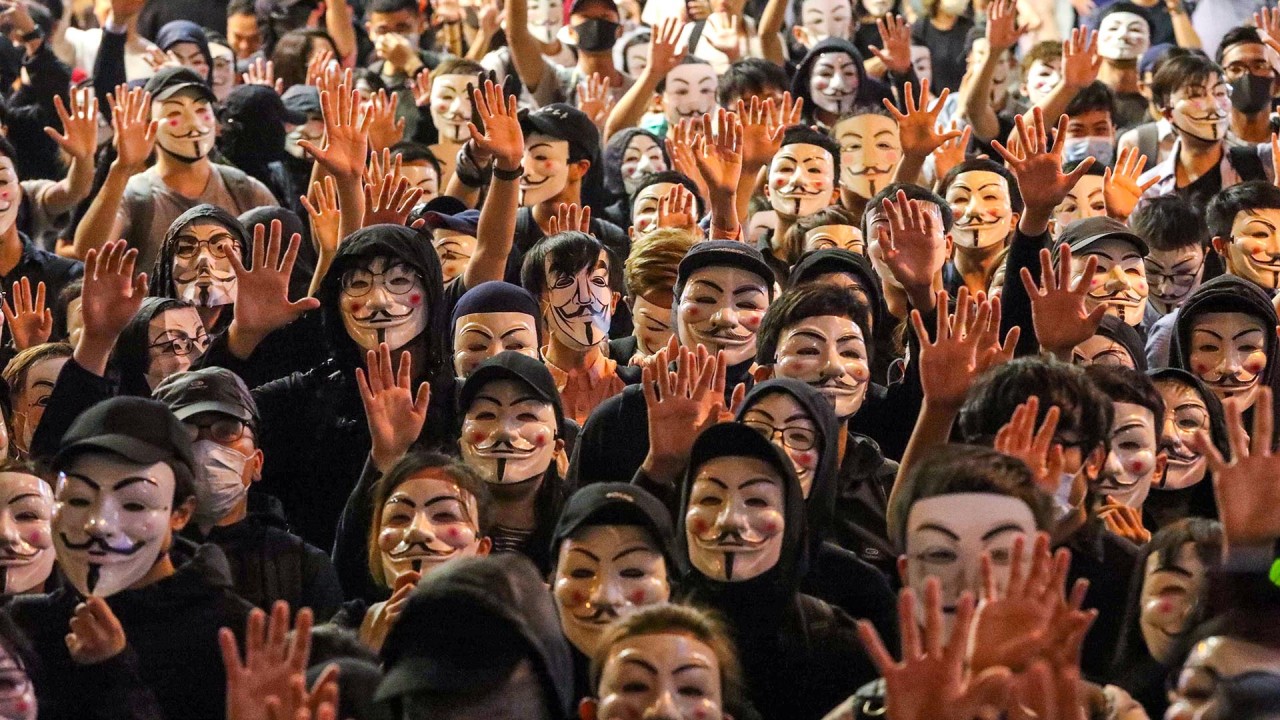
Carrie Lam should lift the ban on masks at public gatherings
- The law upheld by the Court of the Final Appeal belongs to a different time. The protests have stopped and Covid-19 means that people should be encouraged to wear masks rather than take them off
The wearing of face masks in public has become part of daily life in Hong Kong as we continue to fight the spread of Covid-19. It is not only sensible, but a legal requirement.
Last week, however, the Court of Final Appeal upheld a law banning masks at public gatherings. The judgment struck a discordant note. It belongs to a different time.
The law prohibiting masks at protests was introduced by Chief Executive Carrie Lam Cheng Yuet-ngor in October last year at a time of violent anti-government demonstrations. It was extremely controversial.
Lam used her sweeping powers under a draconian colonial-era emergency law to impose the ban. It was the first time the Emergency Regulations Ordinance had been used since the 1967 riots.
Hong Kong mask ban constitutional for all public meetings, court rules
Hong Kong, she said, was in a state of public danger and the prohibition was needed to deter protesters who hid their identity behind masks.
The top court found the emergency legislation to be constitutional and the mask ban valid, even at lawful public gatherings.
This restriction on rights could be justified, the judges said, as an emergency measure needed to tackle a “sudden and severe deterioration of law and order.” The ban was crucial to prevent and deter the violence, they said.
The judges gave a sobering account of last year’s widespread violence, including the throwing of petrol bombs, vandalising of MTR stations and assaults on police and members of the public.
Mask ban would deal blow to freedom of expression, court hears
But the escalation they referred to started on October 5 – the day when the mask law came into effect. Protests that day were sparked by anger at the imposition of the ban. That does not excuse the violence. But it shows the mask law was spectacularly unsuccessful in curbing it.
Former legislators challenging the law in court argued the chief executive’s emergency powers are broad, ill-defined and open to abuse.
The court offered reassurance, saying they could be controlled both by the legislature and by the courts applying constitutional safeguards protecting human rights.

03:39
Protesters gather to mark one month since mask ban was introduced
The extent to which Legco would, in practice, exercise control is questionable in the current political climate. The democrats, those most likely to resist any abuse of power, have all quit or been disqualified. The job would be left to the courts.
The Emergency Regulations Ordinance was passed in 1922. There were calls for it to be scrapped during the run up to the 1997 handover. The government should exercise great caution should it ever be tempted to use these powers again.
The top court’s ruling leaves Hong Kong with a confusing situation. We must wear a mask in public under laws on Covid-19, or face a fine of up to HK$10,000 (US$1,290). But we are required to remove our masks at public gatherings. If we don’t we could be jailed for a year under the emergency regulation. Perhaps the need to wear a mask to protect us from the virus would be considered a “reasonable excuse” and therefore a defence.
Infection in dog, travel bubble, nasal vaccines: Hong Kong’s Covid-19 firsts
There are not likely to be lawful protests while the pandemic continues. Only groups of two are permitted in public under social-distancing rules. But there will come a time when the threat of Covid-19 eases and those restrictions are lifted.
The irony of upholding a ban on masks at a time when they must be worn to protect public health was not lost on the court. The judges said “almost every person in Hong Kong is therefore now wearing a mask in public.” But this was irrelevant for the purposes of the judgment, they said. The court had to decide on the legality of the ban at the time it was imposed, even if “subsequent events have changed the legal context”.
But there are different priorities now. The protests have stopped and the public danger today is Covid-19. That means encouraging people to wear masks rather than take them off. The rationale for the emergency mask ban no longer exists. The chief executive has proved her point by ultimately winning in court. She should now lift the ban.

